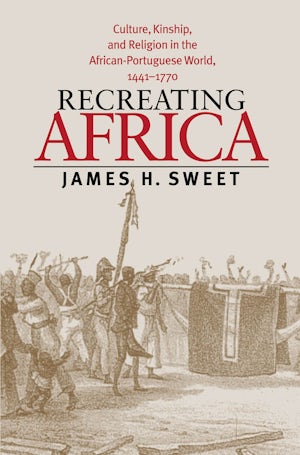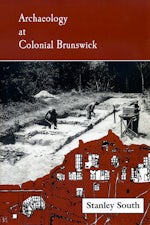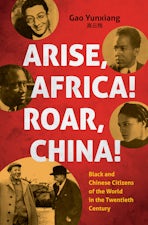Recreating Africa
Culture, Kinship, and Religion in the African-Portuguese World, 1441-1770
By James H. Sweet
320 pp., 6.125 x 9.25, 16 illus., 5 maps, 4 tables, notes, bibl., index
-
Paperback ISBN: 978-0-8078-5482-2
Published: September 2003 -
E-book EPUB ISBN: 978-0-8078-6234-6
Published: July 2004 -
E-book PDF ISBN: 979-8-8908-7670-6
Published: July 2004
Buy this Book
- Paperback $42.50
- E-Book $29.99
For Professors:
Free E-Exam Copies
Awards & distinctions
2004 Wesley-Logan Prize, American Historical Association
Finalist, 2004 Frederick Douglass Book Prize, Gilder Lehrman Center
Slaves transferred many cultural practices from their homelands to Brazil, including kinship structures, divination rituals, judicial ordeals, ritual burials, dietary restrictions, and secret societies. Sweet demonstrates that the structures of many of these practices remained constant during this early period, although the meanings of the rituals were often transformed as slaves coped with their new environment and status. Religious rituals in particular became potent forms of protest against the institution of slavery and its hardships. In addition, Sweet examines how certain African beliefs and customs challenged and ultimately influenced Brazilian Catholicism.
Sweet's analysis sheds new light on African culture in Brazil's slave society while also enriching our understanding of the complex process of creolization and cultural survival.
About the Author
James H. Sweet is assistant professor of history at the University of Wisconsin.
For more information about James H. Sweet, visit
the
Author
Page.
Reviews
"A fascinating collection of evidence."--The Americas
"A fascinating book . . . of considerable importance. It not only contributes to a continuing debate about the nature of slavery, but is a powerful example of Atlantic history as it shows that the societies on both sides of the South Atlantic lived in a kind of spiritual intimacy that was not severed by the infamous middle passage."--History
"Given its scope, conceptual claims, and the depth of archival research, this project warrants the broadest conceivable audience. . . . After reading this richly layered study, the critical importance of Central Africans in Latin America and the African diaspora will be more clear."--American Historical Review
"[Sweet] examines his material from an original point of view--perceptive, sensitive, and supported by a solid bibliographic discussion. The result is a fine book."--African Studies Review
"Among the best of the recent works on Africans in the Atlantic."--International Journal of African Historical Studies
"Sweet has uncovered rich gems from the Inquisition records of the Luso-Atlantic world that are essential to historical reconstructions of Central African religious traditions in Brazil before 1770. He also creates vivid portraits of individual Africans living in Angola, Portugal, and Brazil. This important book includes outstanding narratives of slave religious practices in colonial Brazil that I have seen nowhere else. They are especially significant because they enable historians to document continuities over time with contemporary Afro-Brazilian religions. Highly recommended to all students of the African diaspora."--Mary Karasch, Oakland University




